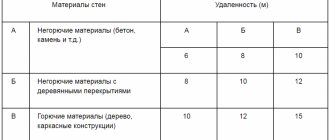A village house, cottage and any other individual household owned by several people is a common occurrence on the Russian real estate market. Since the alienation of part of the common property has its own specifics, legal advice often receives questions from the category of “ how to sell half of the house .” The complexity of registration and profitability of such transactions depend on the legal status of the share: natural shares can be sold more easily and more profitably than non-allocated shares.
If shared ownership of a private house is documented
In legal practice, an allocated and correctly registered share is considered a separate piece of real estate. Therefore, the owner of such property has the appropriate rights of use and disposal, including donation or sale.
Completing a gratuitous transaction (a typical example is a gift) does not require the consent of other co-owners. If we are talking about transactions with financial gain (exchange or sale), then clause 2 of Art. 250 of the Civil Code of the Russian Federation obliges the owner to notify his immediate neighbors in the house about his intention. This is done for reasons of protecting the interests of other participants in shared ownership, for whom redemption is a good way to improve their living conditions.
There are three accepted formats for sending messages with an offer to buy a share:
- through the services of a notary;
- by post (optimally by registered mail);
- telegraph communication.
You can choose any method. The main thing is that the sender eventually has proof of delivery documents on hand. It is important that they indicate the date of receipt, since it is from this moment that the 30 days that are given to the recipient to make a decision to purchase or refuse are counted.
How to sell half of the house and not quarrel with the co-owners?
The easiest way is if the co-owner of the property agrees to purchase the share on the conditions specified in the notice. But in practice, this rarely happens. Most often, there is an intention to buy, but it is not possible to collect the required amount in a month. If you try to solve the problem forcibly, the court usually agrees with the seller. Although much depends on the presence of a third party willing to purchase a share for the amount offered to the co-owner.
There are also other obstacles:
- If the second owner is not able to buy part of the house due to his incapacity, then the guardianship authorities will have to be involved to complete the alienation transaction.
- The address of the co-owner is unknown. Solution: the letter is sent to the address of the disputed property; the lack of registration of the co-owner at this address is not a barrier.
- Legally incorrect registration of rights to the second half of the section object. More often it occurs if the owner of this part of the property has died, and the heirs did not have time / do not want to take over the rights. There is only one way out - to seek legalization.
It is also not uncommon for the seller’s letters to simply be ignored. But there is no particular difficulty here: such behavior is legally regarded as a refusal of a privileged position. That is, after the 30-day period, a third party can become the buyer.
Legal blog
05/02/17, Deineka E.R., Chief lawyer of LLC “AN “TRIUMPHAL ARCH”
Real estate lawyers often have to deal with documents for real estate that actually represent part of a residential building and an adjacent land plot, and according to the documents are registered as:
1) apartment and separate land plot;
2) share of a residential building and a separate land plot;
3) share of a residential building and share of a land plot;
4) part of a residential building and a separate plot of land;
5) part of a residential building and a share of land.
Lawyers understand perfectly well what issues arise when preparing transactions for the sale of such objects, including the issue of application of certain rules of law.
Thus, when the owner sold real estate properties registered as part of a house and ½ share of a land plot, the question previously arose about the relationship between the norms of the Land Code and the Civil Code. Thus, in accordance with clause 4 of Article 35 of the Land Code of the Russian Federation, the alienation of a building or structure located on a land plot and belonging to one person is carried out together with the land plot. Whereas, in accordance with clause 1 of Article 250 of the Civil Code of the Russian Federation, when selling a share in the right of common ownership to an outsider, the remaining participants in shared ownership have a preemptive right to purchase the share being sold at the price for which it is sold. That is, based on the above norms, in order to sell the plot it was necessary to make an offer to sell to another co-owner of the land. But the share of the land plot was sold together with part of the residential building, which was an independent object of ownership.
Considering that in accordance with paragraphs 1, 2 of Art. 552 of the Civil Code of the Russian Federation, under an agreement for the sale of a building, structure or other real estate to the buyer, simultaneously with the transfer of ownership of such real estate, the rights to that part of the land plot that is occupied by this real estate and necessary for its use are transferred, it can be assumed that if the subject of sale and purchase is directly part of the building, then the shared owner of the plot will not have a pre-emptive right to purchase part of the building, since the main subject of sale - part of the building is not shared ownership, and the transfer of the share in the right to the land plot is carried out by virtue of the requirements of the law.
However, it is unlikely that Rosreestr would not have sought the consent of the co-owner, so the owner in this situation decided to alienate these objects by selling part of the house and donating a share of the land plot.
Currently, legislators have corrected this conflict by making appropriate amendments to the Civil Code of the Russian Federation. Federal Law No. 171 of June 23, 2014, paragraph 1 of Article 250 of the Civil Code of the Russian Federation, added a second exception, when there is no need to contact the co-owner. In addition to public auctions, this is the sale of a share in the right of common ownership of a land plot by the owner of a part of a building or structure located on such a land plot or by the owner of premises in the specified building or structure. These changes came into force on 01/01/2017.
If part of a residential building is designed as an apartment,
Owners have difficulties with land registration. Let us consider this case using the example of one court decision.
Ms. S. filed a lawsuit against the City Administration. Khimki on declaring illegal the refusal to provide a land plot under a purchase and sale agreement, and the obligation to conclude a land purchase and sale agreement. In support of her claims, she indicated that she is the owner of a three-room apartment located in a house located on this plot of land.
In resolving the dispute, the court of first instance took into account that the residential building in which the plaintiff's apartment by right of ownership is located is an apartment building and not an individual residential building, and came to the conclusion that the claim was rejected. By the appeal ruling of the Moscow Regional Court dated March 29, 2021 in case No. 33-5158/2017, the decision of the Khimki City Court of the Moscow Region dated September 29, 2016 was left unchanged.
In practice, there is an opinion that in such cases, apartment owners need to prove in courts that the residential building does not meet the characteristics of an apartment building, and the residential premises belonging to them (indicated in the technical documentation and title documents as apartments) are in accordance with Art. 16 Housing Code of the Russian Federation parts of a residential building.
However, the difficulty is that having defined the concepts of “residential building”, “apartment” and “room”, the Housing Code of the Russian Federation is silent about what should be understood as part of a residential building (Clause 1, Part 1, Article 16) and part of an apartment (clause 2, part 1, article 16 of the Housing Code).
Apartment
recognized as a structurally separate room in an apartment building, providing direct access to common areas in such a house and consisting of one or more rooms, as well as premises for auxiliary use, intended to satisfy citizens' household and other needs related to their residence in such a separate room (Article 16 of the RF Housing Code).
A key element of this definition is that the apartment provides direct access to the common areas of the apartment building.
Apartment building
a combination of two or more apartments that have independent access either to a land plot adjacent to a residential building or to common areas in such a building is recognized. An apartment building contains elements of common property of the owners of premises in such a building in accordance with housing legislation. (Resolution of the Government of the Russian Federation of January 28, 2006 No. 47 “On approval of the provision on recognizing premises as residential premises, residential premises unsuitable for habitation and an apartment building as unsafe and subject to demolition or reconstruction”).
In accordance with clause 1 of Article 36 of the Housing Code of the Russian Federation, the owners of premises in an apartment building own, by the right of common shared ownership, the common property in the apartment building, including the land plot on which the house is located. That is, within the meaning of this norm, the owner of the apartment cannot become the owner of the plot of land under the house in which the apartment is located.
Rosreestr has also repeatedly expressed its opinion on this issue. Thus, according to Rosreestr, “registration of residential premises (including apartments) in an individual residential building for state cadastral registration and their subsequent introduction into civil circulation as independent objects of civil rights, in our opinion, contradicts the current legislation” (letter from Rosreestr August 11, 2021 N 14-06792/16).
“In our opinion, residential and non-residential premises in an individual residential building should not be registered with the state cadastral register as independent real estate objects (by analogy with apartments in an apartment building, rooms in communal apartments), except if such premises are a collection premises that form part of a residential building, meeting the characteristics of a residential premises (house) as an independent real estate object, including a block in a residential building of a blocked development. (Letter> Rosreestr dated August 26, 2016 N 14-07394/16)
Let's consider another example from judicial practice
Thus, Petrishcheva G.V., being the owner of an apartment in a three-apartment residential building and 45/100 shares of a land plot, filed a lawsuit against the administration of the Pervomaisky district of the Tambov region to recognize her apartment as part of a residential building with the aim of further acquiring ownership of part of the adjacent building land plot. Satisfying the claim of Petrishcheva G.V. and recognizing the apartment belonging to her as part of the house, the court of first instance proceeded from the fact that in accordance with the evidence presented, including technical documentation for the residential building, the apartment belonging to the plaintiff is structurally separate from the rest of the house as a residential premises, since it has no common with other apartments, internal premises, communications and engineering networks, has a separate entrance.
By ruling of the Supreme Court of the Russian Federation dated May 19, 2015 No. 13-KG15-2, the decision of the Pervomaisky District Court of the Tambov Region dated April 8, 2014 and the appeal ruling of the judicial panel for civil cases of the Tambov Regional Court dated July 2, 2014 were canceled, the case was accepted a new decision, which satisfied the claims of Petrishcheva G.V. The administration of the Pervomaisky district of the Tambov region refused to recognize the apartment as part of the house. The case was considered based on a cassation appeal from the owner of another apartment in the same building.
According to the conclusion of the judicial panel, “the main criterion for classifying a residential building as an apartment building is a collection of several apartments that have independent access to an adjacent land plot or to common premises, as well as the presence of elements of common property. At the same time, the presence of a separate entrance and capital partitions are not criteria for classifying a residential premises as a residential building or part of it. A qualifying feature of a residential building is the presence of rooms (not apartments) in it. The plaintiff’s reference to a violation of her rights in terms of acquiring ownership of a land plot adjacent to the house has no legal significance, since in accordance with paragraph 4 of part 1 of Article 36 of the Housing Code of the Russian Federation, the land plot on which the apartment building is located belongs to the common property of the house, owned by the right of common shared ownership to the owners of the premises in this house.
Thus, the owner of an “apartment” or a “share in a residential building” does not have the opportunity to register ownership of the land plot on which the residential building is located. The owner of a “part of a residential building” may become the owner of a separate plot of land occupied by part of a residential building.
If the common property is not allocated in kind
The reality is that the market price of unallocated shares is approximately 50% less than if the square meters were registered as a separate object. In addition, any realtor will confirm that the demand for unfinished parts of houses is extremely low. That is, finding a buyer on the side can take many months, if not years.
Consequently, the only “legally transparent” option is to negotiate with other participants in the common property. In essence, offer them to transfer their part for their use with payment of compensation (clause 3 of Article 252 of the Civil Code of the Russian Federation). If they do not have money, then they can transfer the rights to a third party through the conclusion of a gift agreement. However, it is important to understand that not every buyer will agree to implement such a scheme. In addition, since the donor will have to pay tax (13% of the cadastral value), the donor will have to provide a discount at the stage of determining the sales price.
Help: how to allocate a share in a private house
Isolation in kind is possible if a couple of important conditions are met. Firstly, the house should not be in disrepair. Otherwise, there is a risk of receiving a refusal from the BTI. And secondly, have the technical capabilities to arrange an isolated room (separate entrance, kitchen, plumbing rooms, communications). For clarification, you should contact construction expertise engineers or the BTI.
In rural areas, difficulties may arise with the land plot on which the residential building is located. For example, a building can be divided into two or more families only if the boundaries of the common plot on which it stands are demarcated. This procedure will allow you to obtain separate cadastral numbers for land shares and then transfer the common property of the household into shared property.
Selling parts and shares of private houses is a complex procedure associated with a number of risks. It will be much easier to contact an experienced and smart realtor who will not only be able to organize the process, but will also ensure the profitability and legality of such transactions.










